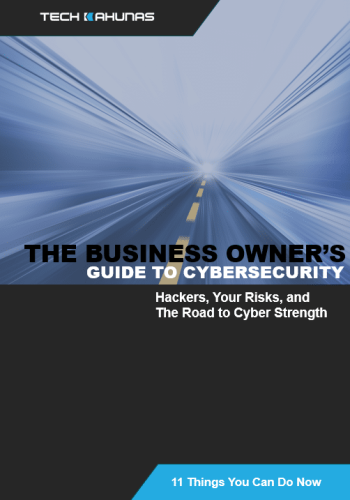Balancing rapid growth with data security in venture-backed biotech companies necessitates a multifaceted approach fused with strategic planning. Technological advancements require robust cybersecurity frameworks encompassing threat detection, incident response, and compliance adherence. Addressing cyber threats like phishing, ransomware, and insider risks through access control and continuous employee training is crucial. Security measures must align with business objectives to protect sensitive research, guarantee compliance with GDPR and HIPAA, and maintain investor trust. Collaborations with security experts and employing advanced encryption protocols bolster data protection against breaches. For a more thorough understanding of best practices and future trends, ongoing exploration is essential.
Key Takeaways
- Implement robust access control measures to protect sensitive data amidst rapid company expansion.
- Regularly conduct security audits to identify vulnerabilities and ensure compliance with regulatory standards like GDPR and HIPAA.
- Integrate cybersecurity frameworks into growth strategies to maintain operational resilience and investor confidence.
- Foster a culture of cybersecurity awareness through continuous employee training to mitigate human error risks.
- Leverage strategic partnerships with security experts to enhance protection against evolving cyber threats.
Understanding Cyber Threats in Biotech
In the complex landscape of the biotechnology sector, understanding cyber threats is vital to safeguarding sensitive data and ensuring operational integrity.
Biotech vulnerabilities arise from the sector's reliance on cutting-edge research and development, making it a lucrative target for cybercriminals. Cyber attack vectors, including phishing, ransomware, and advanced persistent threats, can exploit these vulnerabilities, compromising intellectual property and essential data. Regulatory compliance mandates further necessitate stringent security protocols to protect sensitive information.
Insider threats represent a significant risk, as employees with access to proprietary data can inadvertently or maliciously cause breaches. Third-party risks also loom large, with external partners potentially lacking robust security measures, thereby becoming entry points for cyber attacks.
Implementing thorough cloud security measures is essential to protect data stored and processed in cloud environments, ensuring that only authorized individuals can access critical information.
Incident response planning is a strategic imperative for biotech companies. By preparing for potential breaches, organizations can mitigate damage, reduce recovery time, and maintain trust with stakeholders.
As the biotechnology sector continues to innovate, a proactive approach to understanding and addressing cyber threats will be vital in protecting the industry's valuable assets and ensuring long-term success.
The Importance of Data Security
Data security stands as a cornerstone of operational resilience and strategic growth in biotechnology companies. As these companies handle sensitive intellectual property and personal data, the risk of data breaches looms large, necessitating robust risk management strategies. Compliance regulations such as GDPR and HIPAA underscore the importance of stringent privacy policies to safeguard proprietary information.
Effective data security hinges on extensive employee training tailored to recognize and mitigate potential cybersecurity threats. By fostering a culture of awareness, employees become pivotal in preempting incidents. Additionally, incident response plans must be meticulously crafted to guarantee rapid action when breaches occur, minimizing potential damage and securing stakeholder trust.
The increasing reliance on third-party vendors introduces additional vulnerabilities, making it essential to conduct thorough due diligence. Vendors must adhere to the same security standards, reinforcing the biotech company's defensive posture.
Cloud security also plays a crucial role, requiring sophisticated encryption and access controls to protect data stored off-premises.
Moreover, secure coding practices are essential in software development to prevent exploitation by malicious actors. As the biotech sector continues to expand, prioritizing data security will be indispensable in safeguarding assets and maintaining a competitive edge in an ever-evolving digital landscape.
Building a Robust Cybersecurity Framework
In constructing a robust cybersecurity framework, biotech companies must prioritize threat detection strategies to preemptively identify and mitigate potential risks.
Implementing stringent access control measures is equally critical to guarantee that sensitive data remains protected from unauthorized access.
Prioritizing Threat Detection Strategies
Amid the rapid advancements in biotechnology, implementing a robust cybersecurity framework has become a strategic imperative for safeguarding sensitive data. Prioritizing threat detection strategies involves a multifaceted approach that integrates incident response, threat intelligence, and vulnerability assessment to preemptively identify and mitigate potential threats.
A thorough security architecture must be established, incorporating regular penetration testing to evaluate the resilience of systems against evolving cyber threats. This proactive approach is essential for maintaining the integrity of sensitive biotech data and guaranteeing continuity of operations.
Security awareness among employees is another critical component, as human error often serves as a gateway for cyber incidents. Regular training programs should be conducted to enhance security awareness and reinforce the importance of adhering to established protocols.
In parallel, aligning threat detection strategies with risk management and compliance regulations guarantees that the organization adheres to industry standards and legal requirements, minimizing the risk of data breaches.
Strategic planning in this setting requires a continuous cycle of threat intelligence gathering and analysis, enabling organizations to adapt their cybersecurity measures to the ever-changing threat landscape. By prioritizing these strategies, biotech companies can effectively shield themselves from cyber threats and secure their valuable intellectual property.
Implementing Access Control Measures
Implementing access control measures is a cornerstone of building a robust cybersecurity framework, ensuring that only authorized individuals have access to sensitive biotech data. Effective user access management begins with precise role management, establishing clear permission levels aligned with each user's job responsibilities. This strategic planning minimizes risk by adhering to the principle of least privilege, granting users only the access necessary to perform their duties.
User authentication and identity verification are critical components, reinforcing security policies designed to mitigate unauthorized access attempts. Advanced authentication mechanisms, including multi-factor authentication, bolster the security posture by requiring multiple forms of verification.
Data segregation further enhances security by ensuring that sensitive information is compartmentalized, reducing the risk of widespread data breaches.
Regular access audits and access logging are essential for maintaining the integrity of the access control framework. These audits provide a thorough review of user activities, identifying any deviations from established security policies. Access logging offers a detailed history of user interactions, enabling prompt detection and response to suspicious activities.
Integrating Security With Growth Strategies
As biotech companies navigate the complexities of expanding their operations, the integration of robust data security measures into growth strategies becomes vital. A growth mindset coupled with a strong security culture lays the foundation for sustainable expansion. Conducting thorough risk assessments and aligning them with compliance frameworks guarantees that potential vulnerabilities are identified and mitigated early. By embedding security within innovation strategies, companies can maintain a competitive edge while safeguarding sensitive data.
| Key Component | Description |
|---|---|
| Risk Assessment | Identifying potential threats and vulnerabilities |
| Compliance Frameworks | Adhering to regulations and industry standards |
| Technology Integration | Leveraging technology to enhance security |
| Employee Training | Empowering staff with knowledge and skills |
Strategic planning must involve stakeholder engagement to guarantee all parties understand and support security objectives. Effective resource allocation is essential, allowing for investment in advanced technologies and employee training programs that reinforce data protection. Technology integration should be seamless, enhancing rather than hindering operational efficiency. Forming strategic partnerships with security experts can provide additional layers of protection and insights into emerging threats. By embedding these elements into growth strategies, biotech firms not only protect their assets but also build trust with partners and clients, positioning themselves as leaders in both innovation and security.
Case Studies of Successful Implementations
When exploring the landscape of successful data security implementations within biotech companies, a few exemplary case studies stand out for their strategic and innovative approaches.
One such case is that of Genomic Solutions, a venture-backed entity that harmonized its rapid growth trajectory with robust data security measures. By adopting a layered security architecture, Genomic Solutions effectively mitigated risks associated with unauthorized access and data breaches. Their approach involved integrating advanced encryption methods and multi-factor authentication to safeguard sensitive genomic data, ensuring compliance with industry regulations.
Another notable example is BioTech Innovators, which prioritized strategic planning in its data security framework. Recognizing the importance of protecting intellectual property, they implemented a zero-trust architecture, thereby limiting access rights and continuously monitoring network activity.
This proactive stance not only fortified their data defenses but also instilled confidence among investors and partners.
Expert Insights on Cybersecurity Challenges
Maneuvering the intricate terrain of cybersecurity challenges in biotech companies demands technical expertise and strategic finesse. As these entities innovate, they face multifaceted risks that require vigilant oversight and robust security measures. Key challenges include:
1. Data Breaches and Intellectual Property: Protecting sensitive research data and proprietary information is paramount. Breaches not only jeopardize intellectual property but also disrupt operations and tarnish reputations.
Implementing thorough risk assessment and vulnerability management strategies is essential to preempt these threats.
2. Regulatory Compliance and Third-Party Vendors: Steering through the regulatory landscape is critical. Biotech companies must guarantee that all operations comply with stringent data protection laws.
Collaborating with third-party vendors introduces additional complexities; hence, rigorous due diligence and continuous security audits are indispensable.
3. Security Awareness and Employee Training: Human error remains a significant vulnerability. Cultivating a culture of security awareness through regular employee training can mitigate risks.
A well-prepared workforce is vital for effective incident response and maintaining robust cloud security.
Strategic planning must prioritize these elements, guaranteeing that frameworks are agile enough to adapt to evolving threats while maintaining operational integrity.
Such an approach not only safeguards critical assets but also fortifies the company's position in a competitive industry.
Best Practices for Data Protection
To effectively safeguard sensitive data in biotech companies, the implementation of robust encryption protocols is essential for maintaining confidentiality and integrity.
Regular security audits are imperative to identify vulnerabilities and guarantee compliance with evolving regulatory standards.
Implement Robust Encryption Protocols
In the domain of biotech companies, implementing robust encryption protocols is an essential cornerstone of an extensive data protection strategy. The importance of adhering to stringent encryption standards cannot be overstated, as these guidelines guarantee the preservation of data integrity, a critical component in safeguarding sensitive information.
As biotech firms handle vast amounts of proprietary data, from genetic sequences to proprietary research, encryption acts as a formidable barrier against unauthorized access and data breaches.
A strategic approach to encryption involves several key elements:
- Advanced Encryption Standards (AES): Emphasizing the use of AES, a widely recognized encryption standard, guarantees that data remains secure both at rest and in transit. AES is known for its strong algorithmic foundation, making it a preferred choice for secure data handling.
- End-to-End Encryption: Implementing end-to-end encryption protocols assures that data is encrypted on the sender's side and only decrypted by the intended recipient. This approach minimizes vulnerabilities during data transmission and enhances overall data integrity.
- Key Management Systems (KMS): The deployment of robust KMS is crucial for secure key generation, distribution, and storage. Effective key management mitigates risks associated with key exposure and unauthorized access.
Regular Security Audits Required
Conducting regular security audits is a fundamental best practice for data protection in biotech companies, guaranteeing that security measures remain effective and up-to-date. A security audit systematically evaluates compliance standards, identifying potential vulnerabilities and evaluating the risk landscape. This process is vital for maintaining robust data governance and implementing efficient vulnerability management strategies. Through regular audits, companies can refine their incident response mechanisms and enhance employee training programs, thereby fortifying their overall security frameworks.
| Aspect | Purpose | Benefit |
|---|---|---|
| Risk Assessment | Identify potential threats | Enhanced risk mitigation |
| Compliance Standards | Confirm regulatory alignment | Avoid legal penalties |
| Audit Frequency | Determine audit intervals | Continuous improvement |
Risk mitigation is central to strategic planning in biotech firms, where sensitive data handling is paramount. Establishing a structured audit frequency allows companies to proactively address new threats and confirm alignment with evolving compliance standards. These audits are pivotal for reinforcing data governance and maintaining a secure operational environment. By integrating findings from risk evaluations into actionable strategies, biotech organizations can effectively manage vulnerabilities and mitigate risks. Ultimately, regular security audits serve as an essential tool in the strategic planning arsenal, safeguarding sensitive data and maintaining stakeholder trust.
Future Trends in Biotech Cybersecurity
Amid rapid technological advancements, biotech companies are increasingly focusing on innovative cybersecurity strategies to safeguard sensitive data. As these organizations expand, they must integrate cutting-edge security innovations while maintaining regulatory compliance.
Here are three emerging trends shaping the future of biotech cybersecurity:
- Machine Learning and Threat Intelligence: Machine learning algorithms are becoming instrumental in enhancing threat intelligence by identifying patterns and anomalies indicative of potential breaches. This proactive approach enables more effective risk assessment and vulnerability management.
- Cloud Security and Data Privacy: With the shift towards cloud-based solutions, ensuring robust cloud security is paramount. Biotech firms are adapting their incident response strategies to address cloud-specific threats and bolster data privacy. This involves continuous monitoring and securing data both at rest and in transit.
- Employee Training and Strategic Planning: Human error remains a significant risk factor. Companies are investing in thorough employee training programs to foster a culture of cybersecurity awareness.
Strategic planning is essential for implementing security measures that align with organizational goals while ensuring a swift incident response.
Frequently Asked Questions
How Can Venture-Backed Biotech Companies Maintain Investor Confidence During Rapid Growth?
Venture-backed biotech companies can maintain investor confidence during rapid growth by prioritizing strategic planning and risk mitigation, ensuring consistent investor communication, and fostering growth transparency to demonstrate technical expertise and commitment to sustainable long-term value creation.
What Role Does Company Culture Play in Balancing Growth and Data Security?
Company culture is pivotal in balancing growth and data security by fostering an innovation mindset, implementing transparency practices, and ensuring employee training. Cultivating risk awareness, ethical responsibility, and a collaborative environment are essential for strategic planning and risk mitigation.
How Can Small Biotech Startups Afford Comprehensive Cybersecurity Measures?
Small biotech startups can afford extensive cybersecurity measures by prioritizing cybersecurity budgeting, conducting thorough risk assessments, and employing strategic planning. This approach guarantees efficient resource allocation, enhances risk mitigation, and supports tailored security solutions within financial constraints.
What Are the Potential Legal Implications of Data Breaches for Biotech Firms?
Biotech firms face significant legal liability from data breaches, including financial penalties and loss of intellectual property. Ensuring regulatory compliance through robust cybersecurity policies, risk assessment, and strategic planning is essential to maintaining client trust and mitigating risks.
How Do Rapid Technological Advancements Impact Data Security Strategies in Biotech?
Rapid technological advancements necessitate evolving data security strategies in biotech, emphasizing data encryption, thorough risk assessment, and adherence to compliance regulations. Strategic planning should incorporate robust incident response, cloud security measures, and continuous employee training for effective risk mitigation.



 Get your CPA firm aquainted with new FTC rules.
Get your CPA firm aquainted with new FTC rules. 




